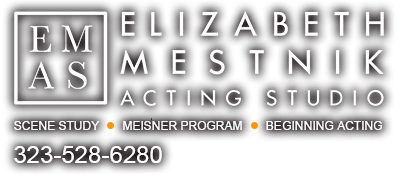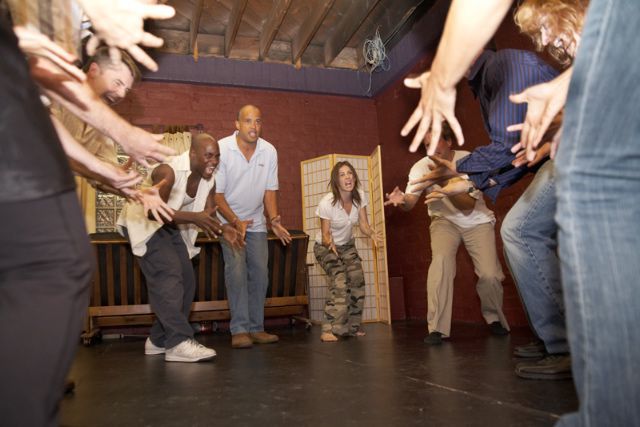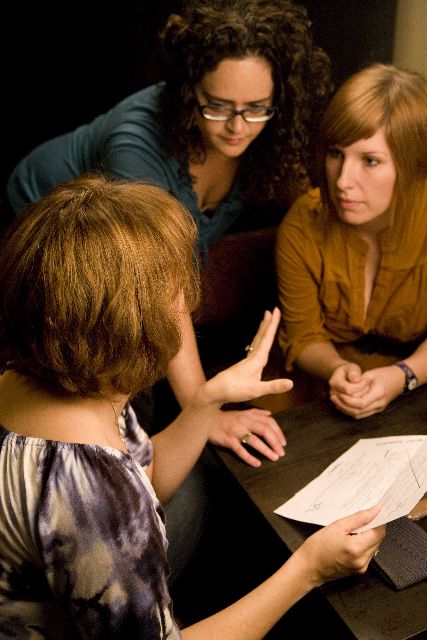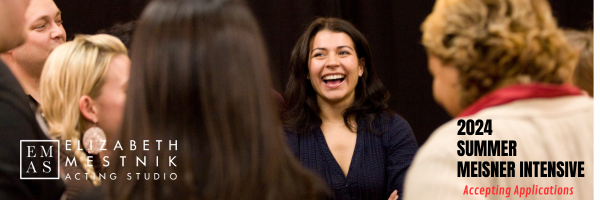How is the Meisner Technique different than other approaches to actor training? Why would you pursue this type of program over all the other acting classes in Los Angeles? In this age of immediate gratification and short attention spans, it seems like The Meisner Technique may fall out of favor, and yet it is still one of the most respected techniques in Hollywood. Why?
The Meisner Technique demands that an actor make a commitment to their training, and if you are in a program that follows Sanford Meisner’s syllabus, this training will take place over 9-months. This is serious training for serious students. Those who come to Hollywood to get famous quickly and easily wouldn’t even consider something like this. So why should you make this sacrifice of time, effort, and yes – money? What does the Meisner Technique do that is so special?
To put it simply – it gets you in actor shape.
I have always compared Acting to other difficult endeavors like playing an instrument or sports, endeavors that also show that whatever effort you put in shows in the product you put out. So, to continue this metaphor, if acting is like, say… Gymnastics… then Meisner is the daily workout at the gym to get strong and flexible. The more traditional acting skills (objectives, actions, character biography etc) are like learning the different elements, – (the cartwheel, the back flip, the somersault etc.) Most Acting Classes teach you the elements, but don’t know how to get you into shape.
Now I will be honest with you. I can do a somersault, and I can even do a cartwheel – but they are pretty pathetic because at the age of 42, I’m really not all that strong and flexible. But if I worked out every day to increase my upper body strength and the flexibility of my spine, those elements would look much better. And when Olympic gymnasts do these elements, we are in awe, because they dedicate themselves to knowing the elements and being fit enough to execute them.
The actor who understands the “elements” like playing an action, or making a character choice, but isn’t emotionally connected to the material leaves the audience cold, or even worse – uncomfortable for the actor. Like me doing my somersault, we don’t want to see it again! The out of shape actor can make sense of a part, but will lack the heart. And we need for the audience to be drawn into our performance, to feel what the actors feel – and if the actors feel nothing – well, the audience will feel nothing. THAT IS NOT ENOUGH! So we train, rigorously, like professional athletes, to take our performance to the next level. To put our abilities on par with the best actors out there.
So why take Meisner? Because it gets you to:
- Discover who you are and how you are unique
- Learn how to bring your uniqueness into performance
- Work honestly off of your acting partner
- Access and strengthen your emotional range
- Be fearless in your work
- Make bold and honest choices
- Work from your instincts and not your intellect
- Personalize any material so that you can connect to it
- Remove self consciousness by focusing on the tasks and people in the scene
- Really do, really feel, really fight, really laugh, really be…Really!
THE ABILITY TO DO THE ABOVE MEANS YOU ARE IN ACTOR SHAPE!
When you complete a Meisner Technique program and can put it on your resume, it also says a lot to the people who might hire you about how dedicated you are to mastering your craft. A casting director who sees that you have completed a true 1 or 2-year Meisner Program knows what they can expect. Spontaneity, emotional range, self-knowledge, brave choices and truthful behavior.
That is why you invest in a Meisner Technique Training Program. To get in shape. Quite simply, to be the best.











